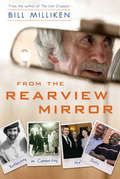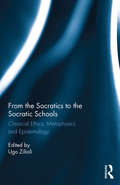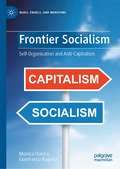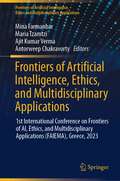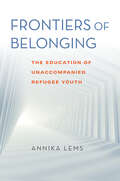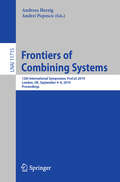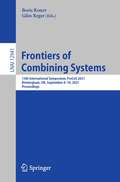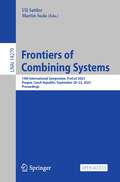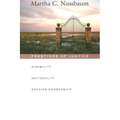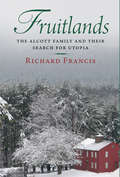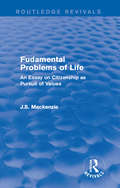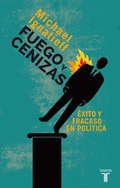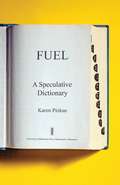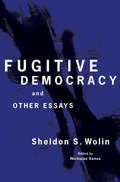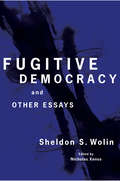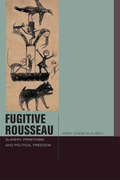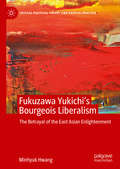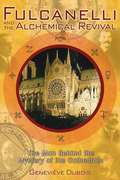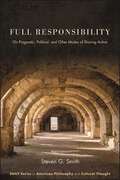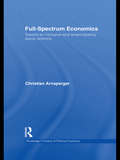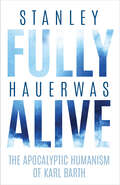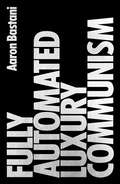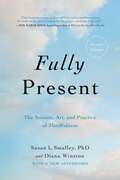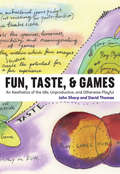- Table View
- List View
From the Rearview Mirror: Reflecting On Connecting The Dots
by Bill MillikenFrom the Rearview Mirror is the story of Bill Milliken’s journey from an affluent Pittsburgh suburb to the streets of Harlem and the Lower East Side of New York City in the 1960s, on to communal living in Georgia in the 1970s, to working with multiple presidential administrations in Washington, D.C. He struggled with an undiagnosed learning disability in school, believing he was dumb and had nowhere to go. After connecting with the Young Life outreach program at the age of 17, however, he found his calling doing street work with homeless, addicted, and other at-risk teens in the turbulent ’60s. Bill and his colleagues founded what grew into Communities in Schools, a highly effective organization working to bring services to young people and prevent them from dropping out of school. Along the way, Bill struggled with bringing his personal life into alignment with his ideals, coming to terms with organized religion and his own spiritual path, and creating the family and community he’d always longed for.
From the Socratics to the Socratic Schools: Classical Ethics, Metaphysics and Epistemology
by Ugo ZilioliIn the two golden centuries that followed the death of Socrates, ancient philosophy underwent a tremendous transformation that culminated in the philosophical systematizations of Plato, Aristotle and the Hellenistic schools. Fundamental figures other than Plato were active after the death of Socrates; his immediate pupils, the Socratics, took over his legacy and developed it in a variety of ways. This rich philosophical territory has however been left largely underexplored in the scholarship. This collection of eleven previously unpublished essays by leading scholars fills a gap in the literature, providing new insight into the ethics, metaphysics, and epistemology as developed by key figures of the Socratic schools. Analyzing the important contributions that the Socratics and their heirs have offered ancient philosophical thought, as well as the impact these contributions had on philosophy as a discipline, this book will appeal to researchers and scholars of Classical Studies, as well as Philosophy and Ancient History.
From the Tree to the Labyrinth
by Umberto EcoThe way we create and organize knowledge is the theme of From the Tree to the Labyrinth, a major achievement by one of the world's foremost thinkers on language and interpretation. Umberto Eco begins by arguing that our familiar system of classification by genus and species derives from the Neo-Platonist idea of a "tree of knowledge. " He then moves to the idea of the dictionary, which--like a tree whose trunk anchors a great hierarchy of branching categories--orders knowledge into a matrix of definitions. In Eco's view, though, the dictionary is too rigid: it turns knowledge into a closed system. A more flexible organizational scheme is the encyclopedia, which--instead of resembling a tree with finite branches--offers a labyrinth of never-ending pathways. Presenting knowledge as a network of interlinked relationships, the encyclopedia sacrifices humankind's dream of possessing absolute knowledge, but in compensation we gain the freedom to pursue an infinity of new connections and meanings. Moving effortlessly from analyses of Aristotle and James Joyce to the philosophical difficulties of telling dogs from cats, Eco demonstrates time and again his inimitable ability to bridge ancient, medieval, and modern modes of thought. From the Tree to the Labyrinth is a brilliant illustration of Eco's longstanding argument that problems of interpretation can be solved only in historical context.
Frontier Socialism: Self-Organisation and Anti-Capitalism (Marx, Engels, and Marxisms)
by Monica Quirico Gianfranco RagonaConsidering the history of workers' and socialist movements in Europe, Frontier Socialism focuses on unconventional forms of anti-capitalist thought, particularly by examining several militant-intellectuals whose legacy is of particular interest for those aiming for a radical critique of capitalism. Following on the work of Michael Löwy, Quirico & Ragona identify relationships of “elective affinity” between figures who might appear different and dissimilar, at least at first glance: the German Anarchist Gustav Landauer, the Bolshevik Alexandra Kollontai, the German communist Paul Mattick, the Italian Socialist Raniero Panzieri, the Greek-born French euro-communist Nikos Poulantzas, the German-born Swedish Social Democrat Rudolf Meidner, and the French social scientist Alain Bihr as well as two historical struggle experiences, the Spanish Republic and the Italian revolutionary group “Lotta continua”. Frontier Socialism then analyzes these thinkers' and experiences’ respective paths to socialism based on and achieved through self-organization and self-government, not to build a new tradition but to suggest a path forward for both research and political activism.
Frontiers of Artificial Intelligence, Ethics, and Multidisciplinary Applications: 1st International Conference on Frontiers of AI, Ethics, and Multidisciplinary Applications (FAIEMA), Greece, 2023 (Frontiers of Artificial Intelligence, Ethics and Multidisciplinary Applications)
by Ajit Kumar Verma Antorweep Chakravorty Mina Farmanbar Maria TzamtziThis groundbreaking proceedings volume explores the integration of Artificial Intelligence (AI) across key domains—healthcare, finance, education, robotics, industrial and other engineering applications —unveiling its transformative potential and practical implications. With a multidisciplinary lens, it transcends technical aspects, fostering a comprehensive understanding while bridging theory and practice. Approaching the subject matter with depth, the book combines theoretical foundations with real-world case studies, empowering researchers, professionals, and enthusiasts with the knowledge and tools to effectively harness AI. Encompassing diverse AI topics—machine learning, natural language processing, computer vision, data analytics and supervisory control — the volume showcases state-of-the-art techniques propelling AI advancements. Structured into four parts: Part 1: Artificial Intelligence (AI), explores evolving deep neural networks, reinforcement learning, and explainable AI, providing a deep dive into the technical foundations of AI advancements. Part 2: Robotics and Control Systems, delves into the integration of AI in robotics and automatic control, addressing supervisory control, automated robotic movement coordination, anomaly detection, dynamic programming, and fault tolerance, offering insights into the evolving landscape of intelligent automation. Part 3: AI and Society, examines the societal impact of AI through chapters on ethical considerations, economic growth, environmental engagements, and hazard management, providing a holistic perspective on AI's role in shaping society. Part 4: PhD Symposium, presents the future of AI through cutting-edge research, covering legal and ethical dimensions, privacy considerations, and computationally efficient solutions, offering a glimpse into the next generation of AI advancements. Catering to a diverse audience—from industry leaders to students—the volume consolidates the expertise of renowned professionals, serving as a comprehensive resource for navigating the ever-evolving AI landscape. An essential reference for those staying at the forefront of AI developments.
Frontiers of Belonging: The Education of Unaccompanied Refugee Youth (Worlds in Crisis: Refugees, Asylum, and Forced Migration)
by Annika LemsAs unprecedented numbers of unaccompanied African minors requested asylum in Europe in 2015, Annika Lems witnessed a peculiar dynamic: despite inclusionary language in official policy and broader society, these children faced a deluge of exclusionary practices in the classroom and beyond. Frontiers of Belonging traces the educational paths of refugee youth arriving in Switzerland amid the shifting sociopolitical terrain of the refugee crisis and the underlying hierarchies of deservingness. Lems reveals how these minors sought protection and support, especially in educational settings, but were instead treated as threats to the economic and cultural integrity of Switzerland. Each chapter highlights a specific child's story—Jamila, Meron, Samuel, and more—as they found themselves left out, while on paper being allowed "in." The result is a highly ambiguous social reality for young refugees, resulting in stressful, existential balancing acts. A captivating ethnography, Frontiers of Belonging allows readers into the Swiss classrooms where unspoken distinctions between self and other, guest and host, refugee and resident, were formed, policed, and challenged.
Frontiers of Combining Systems: 12th International Symposium, FroCoS 2019, London, UK, September 4-6, 2019, Proceedings (Lecture Notes in Computer Science #11715)
by Andreas Herzig Andrei PopescuThis book constitutes the proceedings of the 12th International Symposium on Frontiers of Combining Systems, FroCoS 2019, held in London, UK, in September 2019, colocated with the 28th International Conference on Automated Reasoning with Analytic Tableaux and Related Methods, TABLEAUX 2019. The 20 papers presented were carefully reviewed and selected from 30 submissions. They present research on the development of techniques and methods for the combination and integration of formal systems, their modularization and analysis. The papers are organized in the following topical sections: automated theorem proving and model building, combinations of systems, constraint solving, description logics, interactive theorem proving, modal and epistemic logics, and rewriting and unification.
Frontiers of Combining Systems: 13th International Symposium, FroCoS 2021, Birmingham, UK, September 8–10, 2021, Proceedings (Lecture Notes in Computer Science #12941)
by Giles Reger Boris KonevThis book constitutes the refereed proceedings of the 13th International Symposium on Frontiers of Combining Systems, FroCoS 2021, held in Birmingham, UK, in September 2021.
Frontiers of Combining Systems: 14th International Symposium, FroCoS 2023, Prague, Czech Republic, September 20–22, 2023, Proceedings (Lecture Notes in Computer Science #14279)
by Uli Sattler Martin SudaThis book constitutes the refereed proceedings of the 14th International Symposium on Frontiers of Combining Systems, FroCoS 2023, held in Prague, Czech Republic, in September 2023. The symposium was co-located with the 32nd International Conference on Automated Reasoning with Analytic Tableaux and Related Methods, TABLEAUX 2023.The 14 papers presented were thorouhgly reviewed and selected from the 22 high-quality paper submissions. They are grouped in the volume according to the following topic classification: analysis of programs and equations; unification; decidable fragments; frameworks; higher-order theorem proving.This is an open access book.
Frontiers of Justice: Disability, Nationality, Species Membership
by Martha C. Nussbaumgeneral and the timeless. Yet such theories, addressing the world and its problems, must respond to the real and changing dilemmas of the day. A brilliant work of practical philosophy, Frontiers of Justice is dedicated to this proposition. Taking up three urgent problems of social justice neglected by current theories and thus harder to tackle in practical terms and everyday life, Martha Nussbaum seeks a theory of social justice that can guide us to a richer, more responsive approach to social cooperation.<P><P> The idea of the social contract--especially as developed in the work of John Rawls--is one of the most powerful approaches to social justice in the Western tradition. But as Nussbaum demonstrates, even Rawls's theory, suggesting a contract for mutual advantage among approximate equals, cannot address questions of social justice posed by unequal parties. How, for instance, can we extend the equal rights of citizenship--education, health care, political rights and liberties--to those with physical and mental disabilities? How can we extend justice and dignified life conditions to all citizens of the world? And how, finally, can we bring our treatment of nonhuman animals into our notions of social justice? Exploring the limitations of the social contract in these three areas, Nussbaum devises an alternative theory based on the idea of "capabilities." She helps us to think more clearly about the purposes of political cooperation and the nature of political principles--and to look to a future of greater justice for all.
Fruitlands: The Alcott Family and Their Search for Utopia
by Richard FrancisThis is the first definitive account of Fruitlands, one of history's most unsuccessful--but most significant--utopian experiments. It was established in Massachusetts in 1843 by Bronson Alcott (whose ten-year-old daughter Louisa May, future author of Little Women,was among the members) and an Englishman called Charles Lane, under the watchful gaze of Emerson, Thoreau, and other New England intellectuals. Alcott and Lane developed their own version of the doctrine known as Transcendentalism, hoping to transform society and redeem the environment through a strict regime of veganism and celibacy. But physical suffering and emotional conflict--particularly between Lane and Alcott's wife, Abigail--made the community unsustainable. Drawing on the letters and diaries of those involved, Richard Francis explores the relationship between the complex philosophical beliefs held by Alcott, Lane, and their fellow idealists and their day-to-day lives. The result is a vivid and often very funny narrative of their travails, demonstrating the dilemmas and conflicts inherent to any utopian experiment and shedding light on a fascinating period of American history.
Fudamental Problems of Life: An Essay on Citizenship as Pursuit of Values (Routledge Revivals)
by J.S. MackenzieIn this volume, originally published in 1928, Mackenzie explores the meaning of Value and its place and relation in human thought and life. Divided into two parts, the first concerns itself with more general problems concerning Value while the latter part details the bearing Value has upon social problems. Mackenzie integrates the major branches of philosophy (Logic, Ethics, Metaphysics and Aesthetics) to analyse and evaluate the fundamental problems of citizenship making this title ideal for students of Philosophy and Politics.
Fuego y cenizas. Éxito y fracaso en política
by Michael IgnatieffEl libro que todos los votantes y líderes deberían leer. Una dosis de optimismo para quienes han perdido la fe en los políticos. «Un distinguido intelectual, escritor, periodista y académico deja su biblioteca y su cátedra de Harvard para emprender una carrera política en el más alto nivel, y durante seis años experimenta la pasión y la excitación, el entusiasmo y la intriga, el fracaso y el éxito de los partidos políticos en el amplio escenario canadiense. Seis años después de su inmersión en la vida política, regresa a su biblioteca, se dedica a la reflexión y nos ofrece un relato increíblemente revelador y honesto de esa aventura. Este libro es una brújula que ayudará al lector a encontrar su camino en el vertiginoso laberinto en que la política se ha convertido en las grandes democracias modernas.» Mario Vargas Llosa Fuego y cenizas es una inmersión en la salvaje vida política moderna, y una contribución esencial al debate sobre la participación en ella. ¿Está justificada la pérdida de la fe en la política democrática? ¿Hacen bien en conservarla los idealistas? En un momento en que la ciudadanía reclama con fuerza transparencia y ética, Ignatieff refleja la política como una materia cruel, impredecible e implacable, pero ofrece argumentos para que sigamos creyendo. La crítica ha dicho...«Un relato convincente y emocionante. Si lo que se busca es un texto clarividente, fruto de una aguda observación, mordaz pero a fin de cuentas esperanzador sobre la política contemporánea, este relato es muy difícil de superar.»David Runciman, The Guardian «Las librerías están repletas de memorias escritas por políticos exitosos, cuyo relato de sus carreras brilla con el resplandor de las batallas ganadas. La versión de Michael Ignatieff consta de ingredientes muy distintos: humildad, descubrimiento de sí mismo y humanidad.»Anne-Marie Slaughter, Universidad de Princeton «Fuego y cenizas sirve a muchas gente. Al ciudadano normal (porque eso existe, ¿no?), al político profesional y al que quiera dedicarse a la política. Al ciudadano normal le interesa saber cómo es eso de dejarse arrastrar por una mezcla de idealismo y vanidad, caer en manos de los profesionales del aparato y salir trasquilado.»José Manuel Calvo, Babelia «Lo mejor: sin pelos en la lengua al referirse a la ambición, la crueldad o la inconsistencia de los políticos. Recomendado para quienes consideran, como el propio Ignatieff, que, pese a todo, la política no es solo un juego sucio y la democracia merece la pena.»ABC Cultural «Michael Ignatieff ha relatado en Fuego y cenizas. Éxito y fracaso en política su fallida experiencia como líder en el Partido Liberal de Canadá. El libro, tan brillante como todas su obras, es la mirada atónita y perpleja de una reciénllegado a proceloso interior de un partido político.»Lucía Méndez, El Mundo «Esa rareza: una biografía política conmovedora. [...] Ha aprendido lo que es el combate político y nosotros nos alegramos de conocer a un hombre decente.»Diego Manrique, Babelia «Extraordinario. Fuego y cenizas es un brillante testimonio sobre el estado de la política y una advertencia sobre los peligros y los placeres de la vida política. De lectura obligada para cualquiera que esté contemplando una carrera política.»Robert Collison, Toronto Star «Cautivadoramente sincero, Ignatieff ha escrito un libro elegante, minucioso y franco.»Peter Clarke, Financial Times «Un relato honesto, repleto de una sabiduría alcanzada tras mucho esfuerzo.»John Ivison, National Post
Fuel: A Speculative Dictionary (Posthumanities #39)
by Karen PinkusFuel is an idiosyncratic, speculative dictionary of fuels, real and imagined, historical and futuristic, hopeless and utopian. Drawing on literature, film, and scientific treatises—most produced long before &“climate change&” was in circulation—Fuel argues for a distinction between energy (a system of power) and fuel (a substance, which can be thought of as &“potentiality&”) as it endeavors to undo the dream that we can simply switch to renewables and all will be golden.From &“Air&” to &“Zyklon B,&” entries in this unusual &“dictionary&” include Algae, Clathrates, Dilithium, Fleece, Goats, Theology, Whale Oil, and many, many more. The tone of the entries ranges as widely as the topics: from historical anecdotes (the Ford Fiesta &“boozemobile&”) to eccentric readings of the classics of &“energy lit&” (Germinal and Oil!); from literary observations (a high octane Odyssey?) to excursions into literary theory. The dictionary draws from an eccentric canon, including works by Jules Verne, George Eliot&’s Silas Marner, Paolo Bacigalupi&’s Windup Girl, and the Tom Cruise vehicle Oblivion, among others. A message from this ambitious project is that energy can be understood as a heterogeneous set of self-mystifying systems or machines that block access to thought as they fascinate us. Fuels emerge as more primal elements that the audience can grasp at various points along the way to consumption/combustion. This dictionary can help scramble our thinking about fuel—not in order to demonize energy and not in order to create a new hierarchy in which certain renewables take over from fossil fuels but instead to open up potential ways of interacting with real and imaginary substances, by wrenching them out of narrative and placing them into an idiosyncratic dictionary to be applied by readers into new narratives.
Fugitive Democracy: And Other Essays
by Sheldon S. Wolin Nicholas XenosSheldon Wolin was one of the most influential and original political thinkers of the past fifty years. Fugitive Democracy brings together his most important writings, from classic essays such as "Political Theory as a Vocation," written amid the Cold War and the conflict in Vietnam, to his late radical essays on American democracy such as "Fugitive Democracy," in which he offers a controversial reinterpretation of democracy as an episodic phenomenon distinct from the routinized political management that passes for democracy today.The breathtaking range of Wolin's scholarship, political commitment, and critical acumen are on full display in this authoritative and accessible collection. He critically engages a diverse range of political theorists, including Thomas Hobbes, Karl Marx, Max Weber, Hannah Arendt, John Rawls, Michel Foucault, and Richard Rorty. These essays grapple with topics such as power, modernization, the sixties, revolutionary politics, and inequality, all the while showcasing Wolin's enduring commitment to writing civic-minded theoretical commentary on the most pressing political issues of the day. Here, Wolin laments the rise of conservatives who style themselves as revolutionary, criticizes Rawlsian liberals as abstract to the point of being apolitical, diagnoses postmodern theory as a form of acquiescence, and much more.Fugitive Democracy offers enduring insights into many of today's most pressing political predicaments, and introduces a whole new generation of readers to this provocative figure in contemporary political thought.
Fugitive Democracy: And Other Essays
by Sheldon S. Wolin Nicholas XenosSheldon Wolin was one of the most influential and original political thinkers of the past fifty years. In Fugitive Democracy, the breathtaking range of Wolin’s scholarship, political commitment, and critical acumen are on full display in this authoritative and accessible collection of essays. This book brings together his most important writings, from classic essays to his late radical essays on American democracy such as "Fugitive Democracy," in which he offers a controversial reinterpretation of democracy as an episodic phenomenon distinct from the routinized political management that passes for democracy today. Wolin critically engages a diverse range of political theorists, and grapples with topics such as power, modernization, the sixties, revolutionary politics, and inequality, all the while showcasing enduring commitment to writing civic-minded theoretical commentary on the most pressing political issues of the day. Fugitive Democracy offers enduring insights into many of today’s most pressing political predicaments, and introduces a whole new generation of readers to this provocative figure in contemporary political thought.
Fugitive Rousseau: Slavery, Primitivism, and Political Freedom (Just Ideas)
by Jimmy Casas KlausenCritics have claimed that Jean-Jacques Rousseau was a primitivist uncritically preoccupied with “noble savages” and that he remained oblivious to the African slave trade. Fugitive Rousseau presents the emancipatory possibilities of Rousseau’s thought and argues that a fresh, “fugitive” perspective on political freedom is bound up with Rousseau’s treatments of primitivism and slavery.Rather than trace Rousseau’s arguments primarily to the social contract tradition of Hobbes and Locke, Fugitive Rousseau places Rousseau squarely in two imperial contexts: European empire in his contemporary Atlantic world and Roman imperial philosophy. Anyone who aims to understand the implications of Rousseau’s famous sentence “Man is born free, and everywhere he is in chains” or wants to know how Rousseauian arguments can support a radical democratic politics of diversity, discontinuity, and exodus will find Fugitive Rousseau indispensable.
Fukuzawa Yukichi’s Bourgeois Liberalism: The Betrayal of the East Asian Enlightenment (Critical Political Theory and Radical Practice)
by Minhyuk HwangFukuzawa Yukichi’s Bourgeois Liberalism introduces readers to the East Asian Enlightenment led by Fukuzawa Yukichi, one of the most important figures in the intellectual history of modern Japan. Despite his impact on political theory and modern Japanese history, Fukuzawa remains under-researched in Western academia, and while a few English-language books have been written about Fukuzawa, none have dealt with his political theory. This book describes Fukuzawa as a character with universal relevance and a unique view of the Enlightenment tradition. Emphasizing the power of bourgeois liberalism and the debate regarding its potential for transforming the strict class-caste society of Tokugawa Japan, Hwang discusses Fukuzawa's belief in the significance of individual autonomy, progress, and liberal rule of law in developing his project of the East Asian enlightenment, as well as his supposed “betrayal” of his early commitments due to his existential desire for Western recognition of Japan’s greatness. The book ends with an analysis of the complex relation between liberalism and progress in the East Asian context.
Fulcanelli and the Alchemical Revival: The Man Behind the Mystery of the Cathedrals
by Geneviève DuboisSheds new light on the identity of the alchemist Fulcanelli• Provides new understanding of the relationships between the most important figures of the esoteric milieu of Paris in the first half of the 20th century• Includes a wealth of rarely seen documents, photos, and lettersFulcanelli, operative alchemist and author of The Mystery of the Cathedrals and The Dwellings of the Philosophers--two of the most important esoteric works of the twentieth century--remains himself a mystery. The true identity of the man who allegedly succeeded in creating the philosopher’s stone has never been discovered, despite ardent searches by many--even the OSS (the wartime U.S. intelligence agency, later to become the CIA) claimed to have looked for him following the end of World War II. Geneviève Dubois looks at the esoteric milieu of Paris at the turn of the century, a time that witnessed a great revival of the alchemical tradition, and investigates some of its salient personalities. Could one of these have been this enigmatic man, reported to have last appeared in Seville, Spain, in 1952 when he would have been 113 years of age?The trail followed by the author encounters such figures as Papus, René Guénon, Schwaller de Lubicz, Pierre Dujols, Eugene Canseliet, and Jean-Julien Champagne. Working from rare documents, letters, and photos, Dubois suggests that one of these men could have been hiding his activity behind the pseudonym of Fulcanelli or that Fulcanelli may even have been a composite fabricated by several of these individuals working together. Beyond its attempt to reveal the actual identity of Fulcanelli, Fulcanelli and the Alchemical Revival also presents an explanation of the alchemical doctrine and reveals the unsuspected relationships among the important twentieth-century truth seekers it highlights.
Full Responsibility: On Pragmatic, Political, and Other Modes of Sharing Action (SUNY series in American Philosophy and Cultural Thought)
by Steven G. SmithStarting with an appreciation of the practical realizations that move us to assume responsibility, Full Responsibility develops an ontologically-grounded model of different forms of responsibility and the challenges and fulfillments found in each. Special attention is given to pragmatic and political responsibility, highlighting considerations for right action that are not accurately recognized by universalizing ethics. Issues in abortion decisions, providing for responsible work, and immigration and refugee policy are examined in the complex frame of political responsibility. Moving past the standoff between political moralism and political realism, Steven G. Smith offers an account of political responsibility as an unstable combination of all modes of responsibility. The book concludes by reviewing different approaches to the impossible but compelling ideal of full responsibility. The distinctive natures of ethical, historical, and religious forms of responsibility are discussed in appendices.
Full-Spectrum Economics: Toward an Inclusive and Emancipatory Social Science (Routledge Frontiers Of Political Economy Ser.)
by Christian ArnspergerEconomics is essential in today’s world, and yet mainstream economists are increasingly under criticism for not taking into account sufficiently many dimensions of real life, such as political and moral values, human development, spirituality, and people’s widely shared aspiration to live more liberated lives. This book offers a critical assessment of contemporary mainstream economics by showing that the discipline has become much too narrow and misses out on the full spectrum of human existence. The book presents a careful, detailed analysis of the limitations of neoclassical economics and of its post-neoclassical successors: behavioral economics, neuroeconomics, and experimental economics. It offers a deconstruction rooted in the "Integral" philosophy developed over the past three decades by the contemporary American thinker Ken Wilber. Distinguishing between exterior and interior dimensions of human existence, it suggests that economics could be made into a more inclusive and more emancipatory science if it started to truly honor the genuinely interior aspects of individuals and communities. Instead of remaining stuck in the limitations of post-neoclassical theory, we should make the move toward a new paradigm that, in the name of science, promotes objectivity as well as subjectivity, and material causality as well as existential awareness. The result is a highly expanded sense of relevance for economists, sociologists, and social scientists in general. Combining methodologies from systems science, brain science, ethno-methodology, and existentialism as well as from the great spiritual traditions of humanity, Christian Arnsperger delineates the requirements of a genuinely integral economics beyond today’s crippling reductionism.
Fully Alive: The Apocalyptic Humanism of Karl Barth (Richard E. Myers Lectures)
by Stanley HauerwasLiving through an apocalyptic time, Swiss theologian Karl Barth influenced Christianity in the twentieth century profoundly. He publicly rejected Hitler’s Nazism, advocated on behalf of workers and laborers, and ministered to prisoners. Barth was named by Pope Pius XII as "the greatest theologian since Thomas Aquinas" and in 1962 even appeared on the cover of Time magazine. In Fully Alive, one of America’s best and most provocative theologians, Stanley Hauerwas, demonstrates that Barth’s radical theological perspective is particularly relevant and applicable to the challenges of our own time.Hauerwas argues that Barth’s engagements with the social and political struggles of his day can help us see what it means to be fully human in the twenty-first century. The ecclesiastical and the political were inseparable for Barth; similarly, Hauerwas shows why it is crucial for theological claims to produce insights that make it possible for our lives to be well lived. Including chapters on race, disability, and the church in Asia, Hauerwas shows how Barth’s political theology can be read as a training manual that can help us maintain our humanity in a world in crisis.
Fully Automated Luxury Communism
by Aaron BastaniA different kind of politics for a new kind of society--beyond work, scarcity and capitalismIn the twenty-first century, new technologies should liberate us from work. Automation, rather than undermining an economy built on full employment, is instead the path to a world of liberty, luxury and happiness—for everyone. Technological advance will reduce the value of commodities—food, healthcare and housing—towards zero. Improvements in renewable energies will make fossil fuels a thing of the past. Asteroids will be mined for essential minerals. Genetic editing and synthetic biology will prolong life, virtually eliminate disease and provide meat without animals. New horizons beckon. In Fully Automated Luxury Communism, Aaron Bastani conjures a vision of extraordinary hope, showing how we move to energy abundance, feed a world of 9 billion, overcome work, transcend the limits of biology, and establish meaningful freedom for everyone. Rather than a final destination, such a society merely heralds the real beginning of history.
Fully Present: The Science, Art, and Practice of Mindfulness
by Susan L. Smalley Diana Winston&“Excellent. Fully Present offers one of the clearest introductions to mindfulness in the field.&” —Library Journal Mindfulness has attracted ever‑growing interest and tens of thousands of practitioners, who have come to the discipline from both within and outside the Buddhist tradition. In Fully Present, leading mindfulness researchers and educators Dr. Sue Smalley and Diana Winston provide an all‑in‑one guide for anyone interested in bringing mindfulness to daily life as a means of enhancing well‑being. This new edition, how with a new afterword, provides both a scientific explanation for how mindfulness positively and powerfully affects the brain and the body as well as practical guidance to develop both a practice and mindfulness in daily living, not only through meditation but also during daily experiences. Now, you can wait in line at the supermarket, exercise, or face difficult news with calm and mental fortitude. Ditch the absent-minded lifestyle and begin bringing your full self and your full mind everywhere. With research studies, personal accounts, and practical applications, Fully Present highlights how things like simply breathing, listening, and walking can change your perspective--and your life.
Fun, Taste, & Games: An Aesthetics of the Idle, Unproductive, and Otherwise Playful (Playful Thinking)
by John Sharp David ThomasReclaiming fun as a meaningful concept for understanding games and play.“Fun” is somewhat ambiguous. If something is fun, is it pleasant? Entertaining? Silly? A way to trick students into learning? Fun also has baggage—it seems inconsequential, embarrassing, child's play. In Fun, Taste, & Games, John Sharp and David Thomas reclaim fun as a productive and meaningful tool for understanding and appreciating play and games. They position fun at the heart of the aesthetics of games. As beauty was to art, they argue, fun is to play and games—the aesthetic goal that we measure our experiences and interpretations against. Sharp and Thomas use this fun-centered aesthetic framework to explore a range of games and game issues—from workplace bingo to Meow Wolf, from basketball to Myst, from the consumer marketplace to Marcel Duchamp. They begin by outlining three elements for understanding the drive, creation, and experience of fun: set-outsideness, ludic forms, and ambiguity. Moving from theory to practice and back again, they explore the complicated relationships among the titular fun, taste, and games. They consider, among other things, the dismissal of fun by game journalists and designers; the seminal but underinfluential game Myst, and how tastes change over time; the shattering of the gamer community in Gamergate; and an aesthetics of play that goes beyond games.
